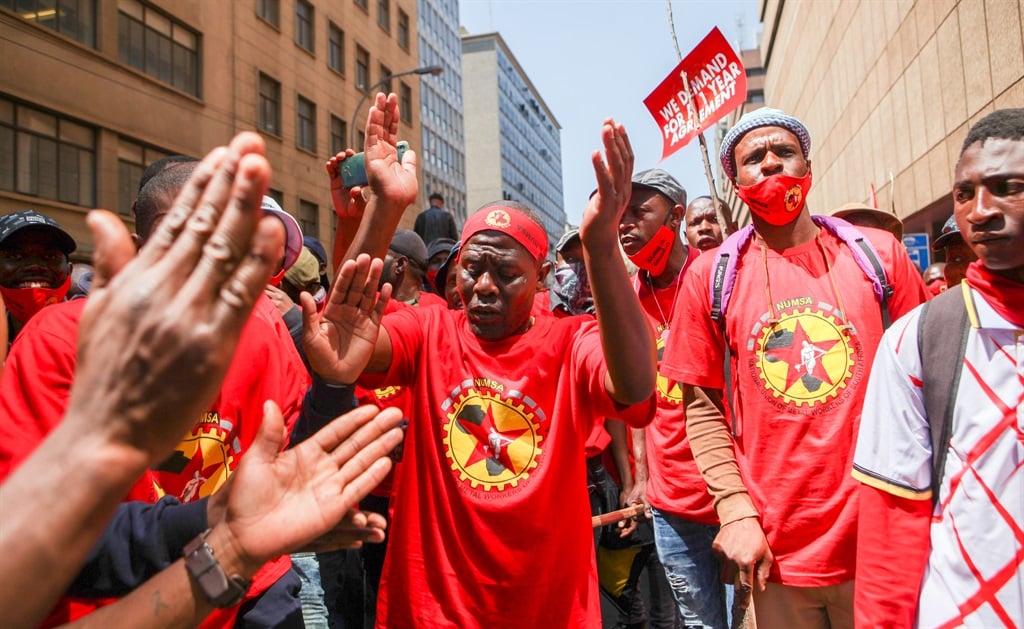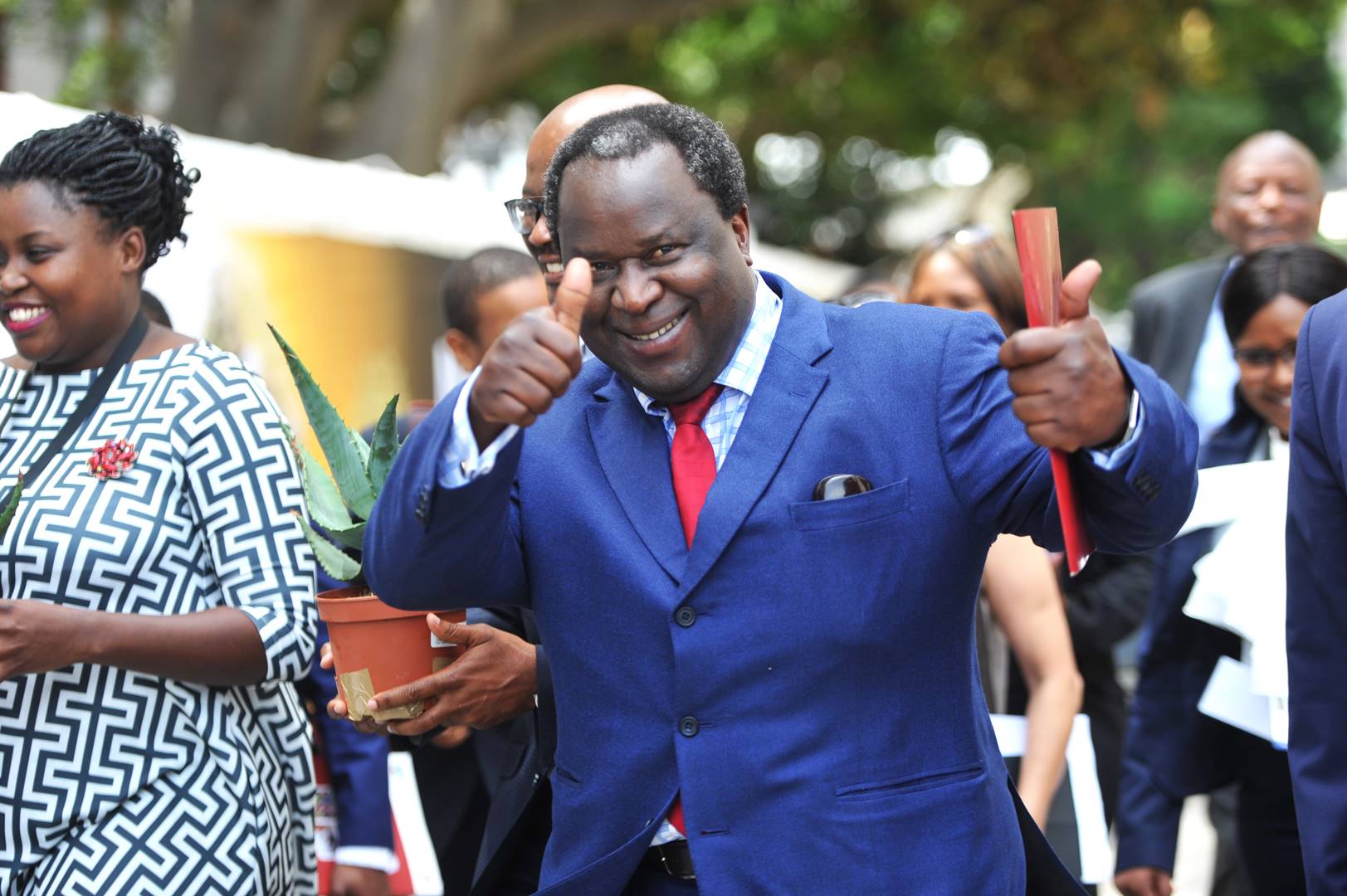
As we await the conciliation process to resolve the current bargaining dispute in the public service and anticipate the impending Medium Term Budget Policy Statement next week, as Nehawu, we want to remind government and the public at large that section 195 of the South African Constitution states that “public administration must be development-oriented”.
Taken together with other basic values and principles outlined in the Constitution's public administration in chapter 10, such as "people's needs must be responded to and the public must be encouraged to participate in policy-making" and that "a high standard of professional ethics must be promoted and maintained", as well as the socioeconomic rights enshrined in section 27, the Constitution enjoins the building of a uniquely democratic developmental state in South Africa.
This is an antithesis of the neoliberal state, characterised by fragmentation through many top-heavy state agencies, the outsourcing of government functions to the market and the related corruption and wastages driven through the ever-swelling allocations to the "goods and services" for procurement across all spheres and entities.
READ: Inside Labour | The union structure is slowly falling apart
At any point in time, the state of the economy by and large reflects the quality and the related outcomes of the previous policy choices and decisions. In this regard, the role of the state, including the effective delivery of national, provincial, and municipal services in raising the potential economic growth rate, is a key determinant.
For instance, between 2009 and 2019, public sector investment averaged a mere 6.7% GDP, and it is declining in the medium term, at least up to 2024/25. Hence, economic stagnation and the widespread dilapidation of infrastructure and deteriorating municipal and public services and goods, including hospitals, schools, and roads.
READ: SA set to feel growth squeeze
Since 2015, when the then-finance minister, Pravin Gordhan, announced that "the pace of fiscal consolidation will be accelerated", cutting the expenditure ceiling over the following three years by R25 billion, in a forlorn hope of reducing the budget deficit to 2.4% by 2018/19, government spending per head has been falling, which in turn, aggravated the already falling GDP per capita.
This narrative has now turned out to be an abject lie, as the Treasury itself has admitted this year that "since 2011/12, the number of government employees has declined". Ironically, this was paralleled by the bloating of the Cabinet.
As if this was not severe enough for the working poor and unemployed, in the very first budget of the sixth democratic government in 2020, the then-finance minister Tito Mboweni announced a sweeping R160 billion cut in the medium-term allocations for the compensation of the public servants, while mouthing banalities, such as "we need qualified, motivated and effective staff".
READ: Inside Labour | Workers, wages and state failures regarding the labour market
This was part of the broader R261 billion austerity offensive on vital public services upon which the working class and rural poor depend, as the budget baselines of human settlements, public transport, health and education infrastructure were not spared.
It was estimated by the Financial and Fiscal Commission (FFC) that there would be about a 14% real reduction in per capita non-interest spending in the period leading to 2024, which is a serious concern. Hence, the FFC condemned the tabled budget in 2021 in so far as it reversed the progressive realisation of socio-economic rights in the Bill of Rights.
The FFC stated:
The rolling budgetary cuts in vital public services and measures to squeeze government’s contribution to the economy have been intensified since the 2020 budget speech. This has further choked economic development and in turn worsened the prevailing crises of the cost of living and social reproduction, amid persistently high unemployment and poverty rates.
Under the sixth democratic government, the Treasury shifted its narrative to justify its blatant disdain for collective bargaining as it disgracefully dishonoured clause 3.3 of resolution 1 of 2018 applicable in 2020, as signed at the Public Service Coordinating Bargaining Council (PSCBC).
The new narrative, which was also propagated by stenographic reporters and commentators in the media, was that over the past decade leading to 2020/21, public servants earned better than workers in the private sector.
This has been a new trope to support the neoliberal argument that the so-called public service wage bill was too high and crowding out capital spending, when in fact its proportion only increased as the overall spending ceiling was increasingly scaled back - corresponding to the contracting revenue and austerity measures.
READ: Wage bill is the debt threat
Once again, Treasury dissembled another abject lie because these public professionals on the frontlines of delivering public services, such as teachers, nurses, doctors, and pharmacists, are paid worse than their counterparts in the private sector.
Naturally, the OSD lifted the baseline of the public service wage bill. If the misguided resolution adopted at the ANC’s 6th National Policy Conference on the abolishment of the OSD goes through at its 55th national conference, this short-term and quick-fix opportunism to reduce the public debt and achieve a primary-surplus budget by 2023/24 would have been at the expense of the long-term realisation of a capable and development-oriented public service, as required by the Constitution.
READ: Government's wage offer is 'insulting and disrespectful' - public servants
This would definitely spark another wave of an accelerated haemorrhage of scarce expertise away from the public service. Yet, despite all the pompous lecturing and posturing by finance ministers during their budget speeches, to this day, The treasury has still not given us a response in terms of its idea of a suitable size and shape of a capable public service to serve 60 million people, especially half of the population that is trapped in poverty, including the related remuneration policy and wage bill.
In 2019, we asked the Treasury to undertake a spending review on goods and services across government, a budgetary item that continued to grow above average inflation in the decade leading to 2020 and which is also a channel of corruption through procurement and tenders.
Government and commentators must desist from scapegoating public servants for the budget deficit, public debt and interest payments, while at the same time in other forums, President Cyril Ramaphosa already admitted that corruption cost the country over R500 billion over the past decade leading to 2020. The Treasury in the 2022 budget speech disclosed that over R308 billion has been siphoned off by the bail-outs of the “failing state-owned companies”.
Despite the shrinking revenue, attacks on vital public services and deteriorating standards of living of public servants amid the rolling wage freezes, escalating cost of living and social reproduction, this year, the Treasury effected a corporate tax cut, which was not even accounted for or fiscally audited in the budget review as to how it was to be funded.
Instead, this race to the bottom informed by the logic of trickle-down economics to effect supply-side reforms was flimsily justified by the Treasury’s Ismail Momoniat in Parliament. He stated that the corporate tax cut was prompted by similar measures in Britain and the US. This effectively means that government took away from public servants or borrowed money to fund this corporate tax cut.
READ: Costly strike season on the cards
That the recently the International Monetary Fund (IMF) had to call upon the new UK government led by Liz Truss to "re-evaluate" its sweeping package of tax cuts outlined in the ill-fated mini-budget, fearing that they would “likely increase inequality”, underscores the fact that the global oligarchy is now anxious about the political sustainability of the prevalent neoliberal accumulation regime of low taxes for the rich.
We have already borne witness to the spectacular collapse of the Rajapaksa dynasty in Sri Lanka this year on the back of its drastic tax cuts amid rising public debt.
We may not be in the "post-neoliberal era" as recently claimed by the columnist of the Financial Times, Rana Foroohar, but the conventional rationale of supply-side reforms, lower taxes and the expansion of markets into every sphere, including in public services, is now untenable.
After a decade of stagnation of global capitalism, the IMF is forecasting a further decline in economic growth in which at least a third of the global economy is actually going to contract in the short term. Under such circumstances, we can only paraphrase Antonio Gramsci, when he famously said that the old is dying and the new is struggling to be born; but the morbid symptoms are everywhere in the global capitalist system.
Saphetha is Nehawu's general secretary




 Publications
Publications
 Partners
Partners










